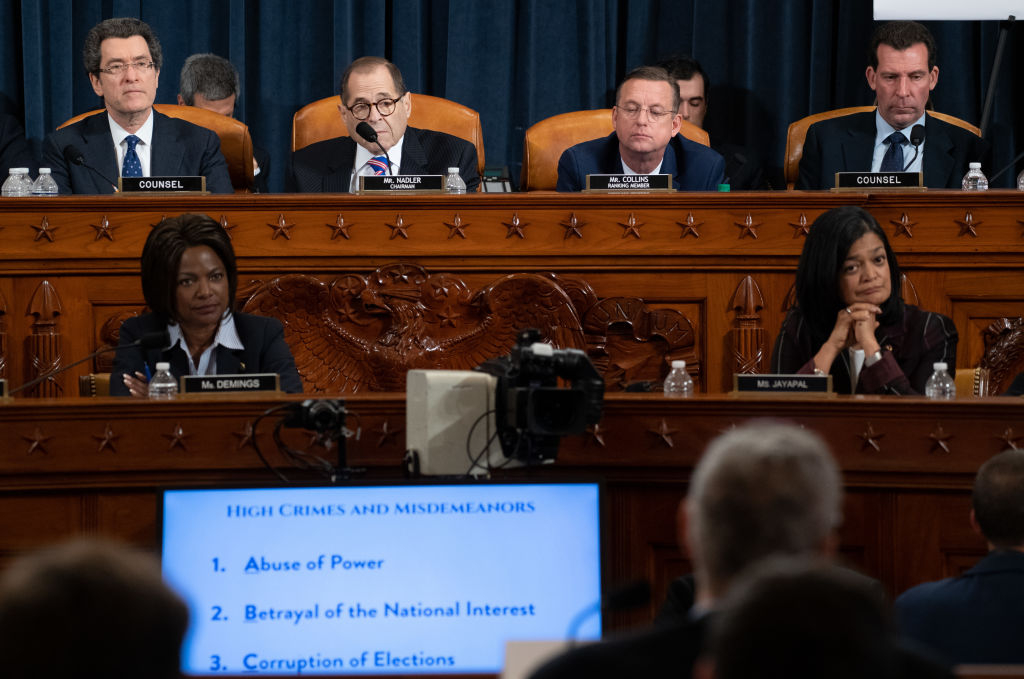Impeaching Trump for Obstructing Congress Would Harm Checks and Balances
by Alan M. Dershowitz • December 7, 2019 at 5:00 am
The president, as head of the executive branch, is entitled to challenge in court legislative subpoenas that demand material that may be subject to claims of privilege. He is also entitled to insist that the legislature obtain a court order before the executive branch complies. That is how checks and balances work.
Even if the president were wrong in challenging these subpoenas, his being wrong would not come close to being an impeachable offense. What do the Democratic experts claim it is? Treason? Bribery? A high crime? A high misdemeanor? It is none of the above and is, therefore, not a basis for impeachment.
For Congress to impeach President Trump for abuse of Congress would be an abuse of power by Congress. So despite the partisan opinions of the Democratic academic experts, Congress should not include abuse of Congress among its list of impeachable offenses. Nor should it include any counts that do not fit the specified Constitutional criteria. Since the evidence adduced thus far fails to establish treason, bribery or other high crimes and misdemeanors, Congress should not vote to impeach. If it does vote to do so along party lines, it will be acting unconstitutionally and placing itself above the supreme law of the land.

Among the grounds for impeachment being considered by the House Judiciary Committee is that President Trump obstructed Congress by refusing to have members of the executive branch comply with Congressional subpoenas without orders of the court. This ground was given the imprimatur of the academic experts who testified for the Democrats. These experts, however, were not only wrong; their opinions pose a real danger to civil liberties and checks and balances. Moreover, it is highly questionable that these experts would have said that citizens must always comply with Congressional subpoenas without a judicial order if the political shoe were on the other foot.

